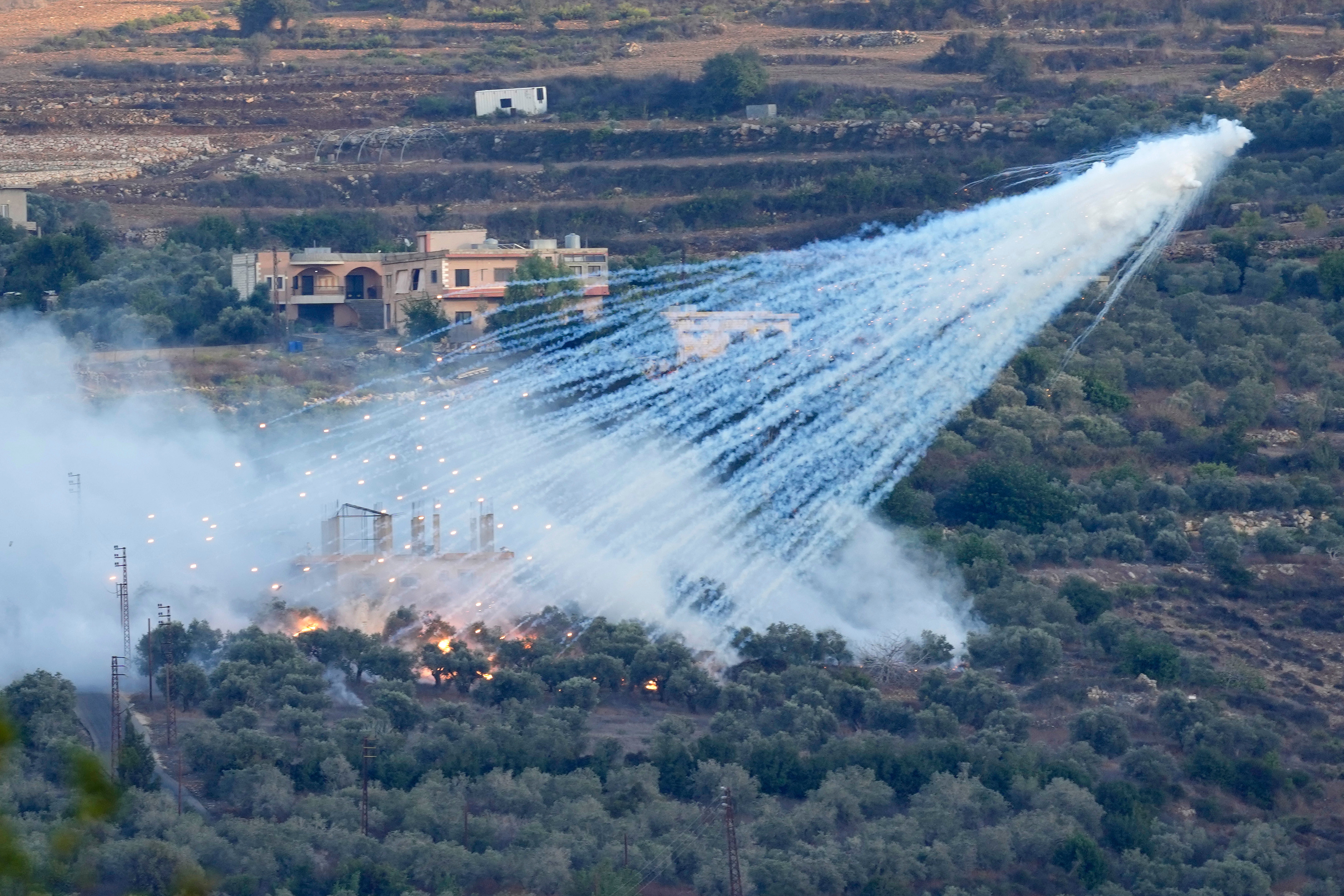US ‘asking questions’ about Israeli use of white phosphorous, White House says
National Security Council spokesperson says Biden administration ‘concerned’ over reports that Israel may have misused the controversial weapons

The US government is “certainly concerned” about the possibility that the Israeli military misused US-made white phosphorous munitions during an attack in southern Lebanon two months ago, National Security Council spokesperson John Kirby said Monday.
Mr Kirby, who addressed reporters aboard Air Force One en route to an appearance by President Joe Biden in Philadelphia, said American officials have seen a recent Washington Post report indicating that Israel made use of the incendiary rounds, which were made in US facilities in Arkansas and Louisiana in the early 1990s.
The Post reported on Monday that one of their reporters in Lebanon found remnants of the shells bearing lot codes and markings indicating that they contained white phosphorous near Dheira, a town close to the Israeli-Lebanese border.
Such munitions are often used to produce smoke or illumination during nighttime operations by way of burning white phosphorous, which ignites when it comes into contact with oxygen and burns at temperatures as high as 1,500 degrees Fahrenheit.
While the shells are useful for light or concealment and are often used for that purpose, they can also be used as a chemical weapon that produces horrific burns and can start fires that are difficult to extinguish.
“We’ve seen the reports, we’re certainly concerned about that,” said Mr Kirby, who added that the US will be “asking questions to try to learn a little bit more”.
Mr Kirby, a retired US Navy admiral, noted that the shells, while not permitted for use as incendiary rounds under international conventions against chemical weapons, “have a legitimate military utility in terms of illumination and bruising, smoke to conceal movements”.
“Obviously anytime that we provide items like white phosphorus to another military, it is with the full expectation that it’ll be used in keeping with those legitimate purposes and in keeping with the law of armed conflict,” he said.
The Israeli attack on Dheira reportedly injured nine people, sending at least three of them to be hospitalised.
An Israeli Defence Forces spokesperson told the Post that the IDF use of the white phosphorous shells “complies and goes beyond the requirements of international law” and said Israel uses them to create smokescreens.
Biden administration officials have said the US is not engaging in detailed monitoring of how Israel uses the billions in defence aid it receives from Washington each year.
Join our commenting forum
Join thought-provoking conversations, follow other Independent readers and see their replies
Comments
Bookmark popover
Removed from bookmarks